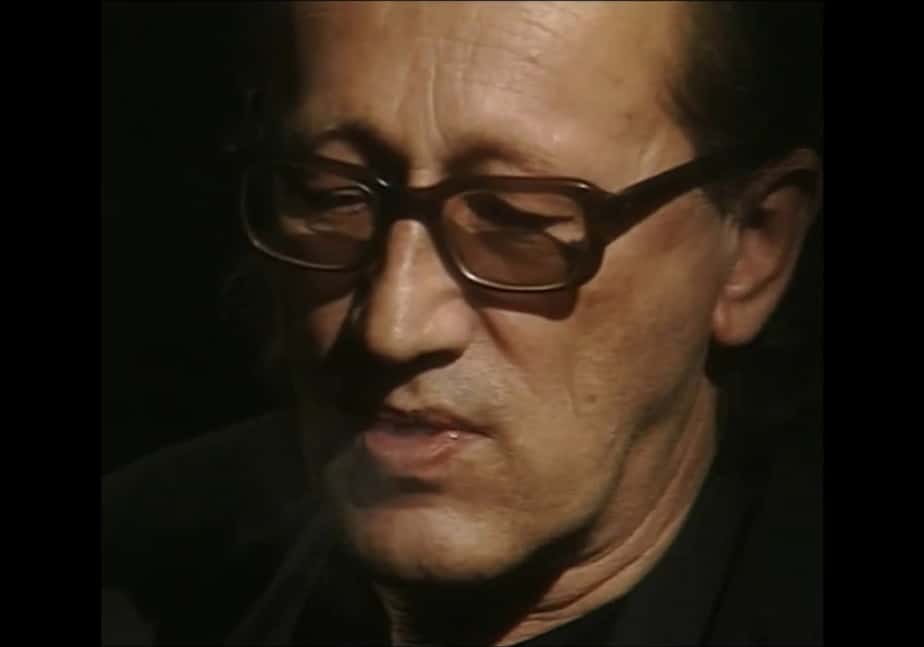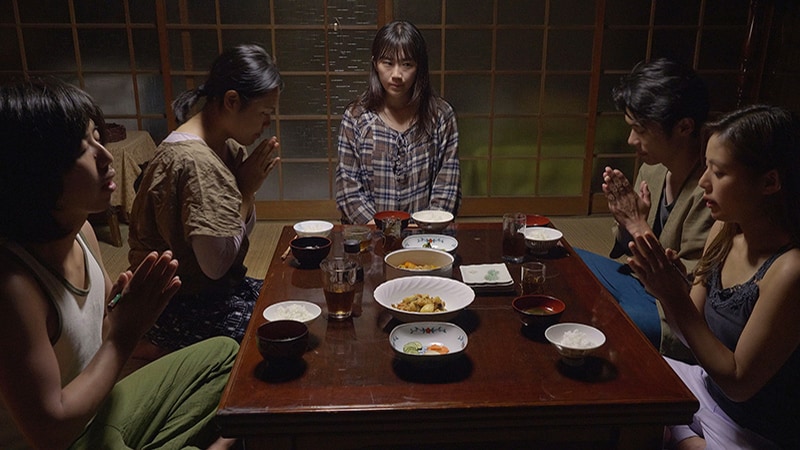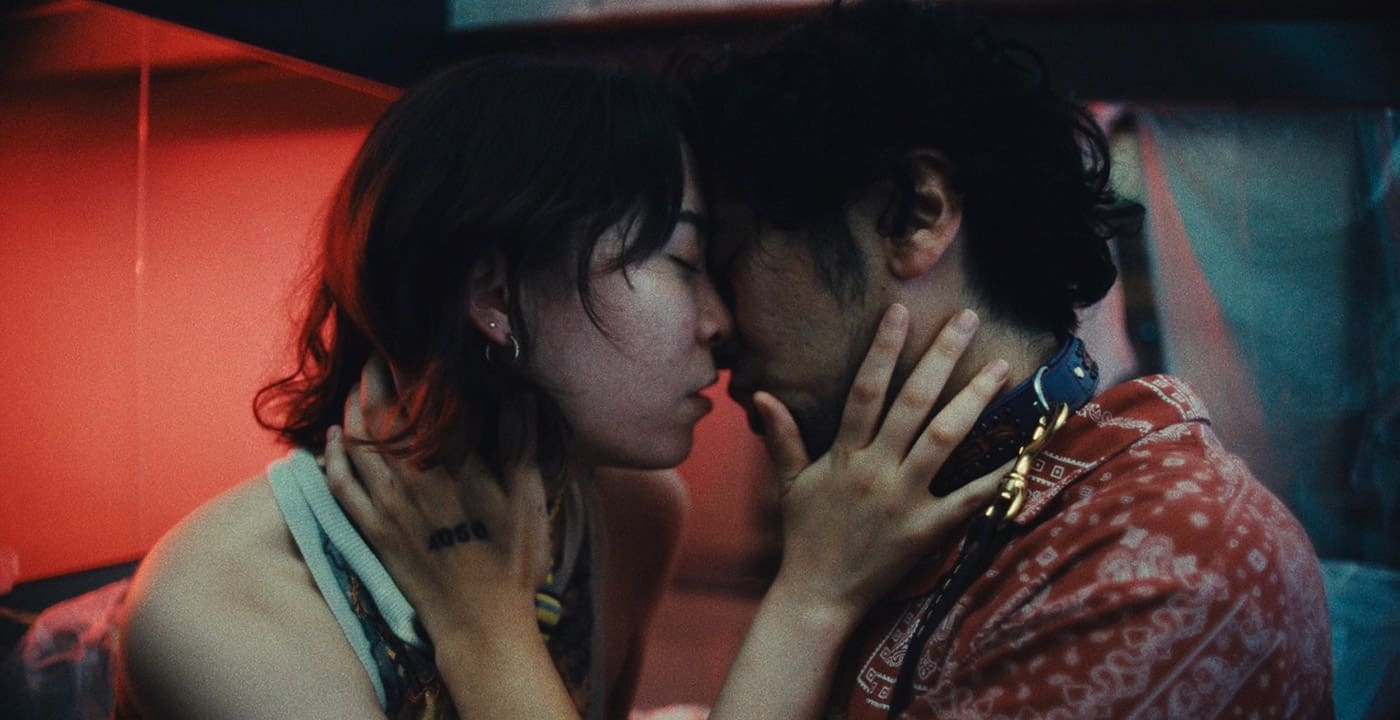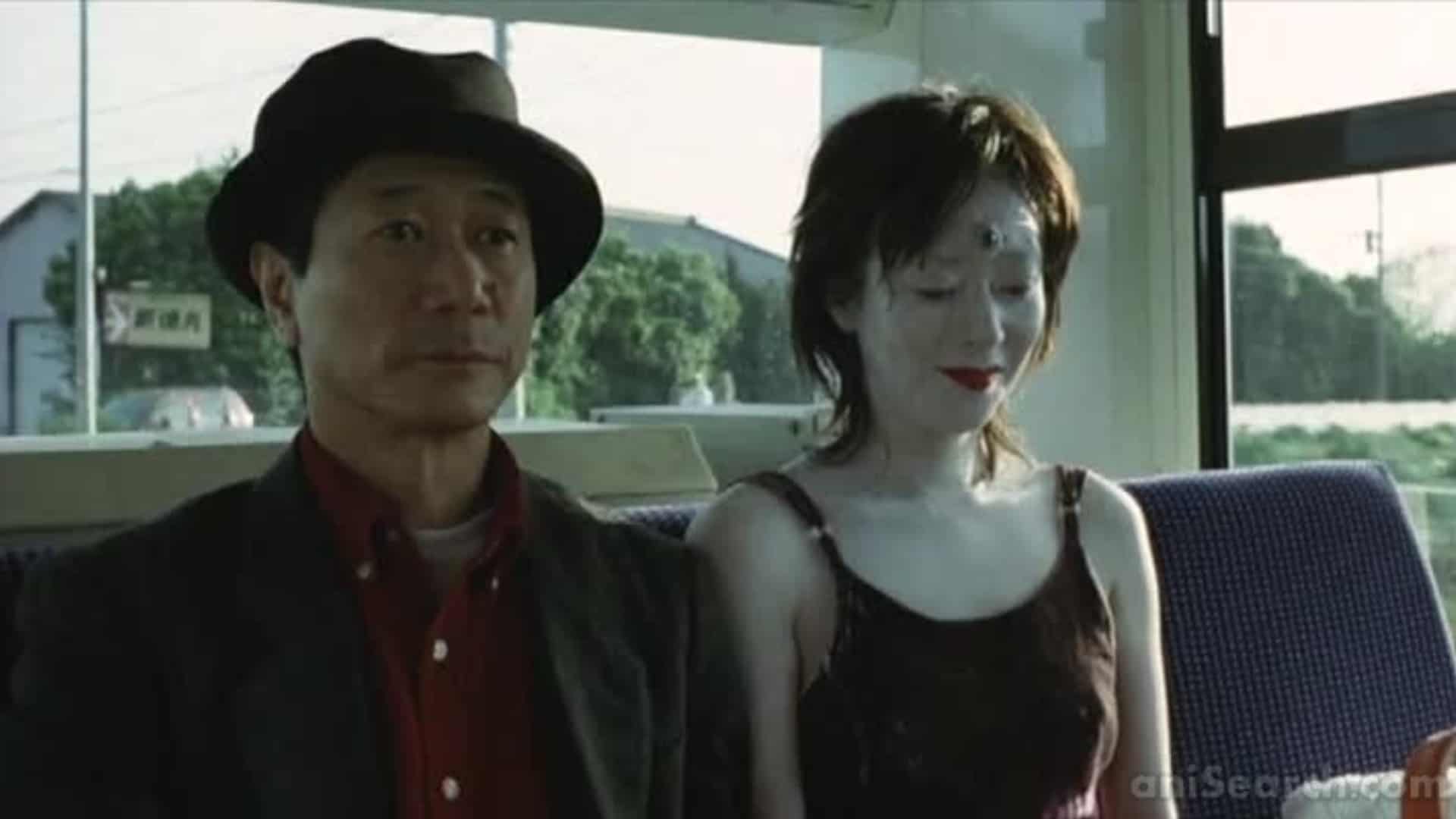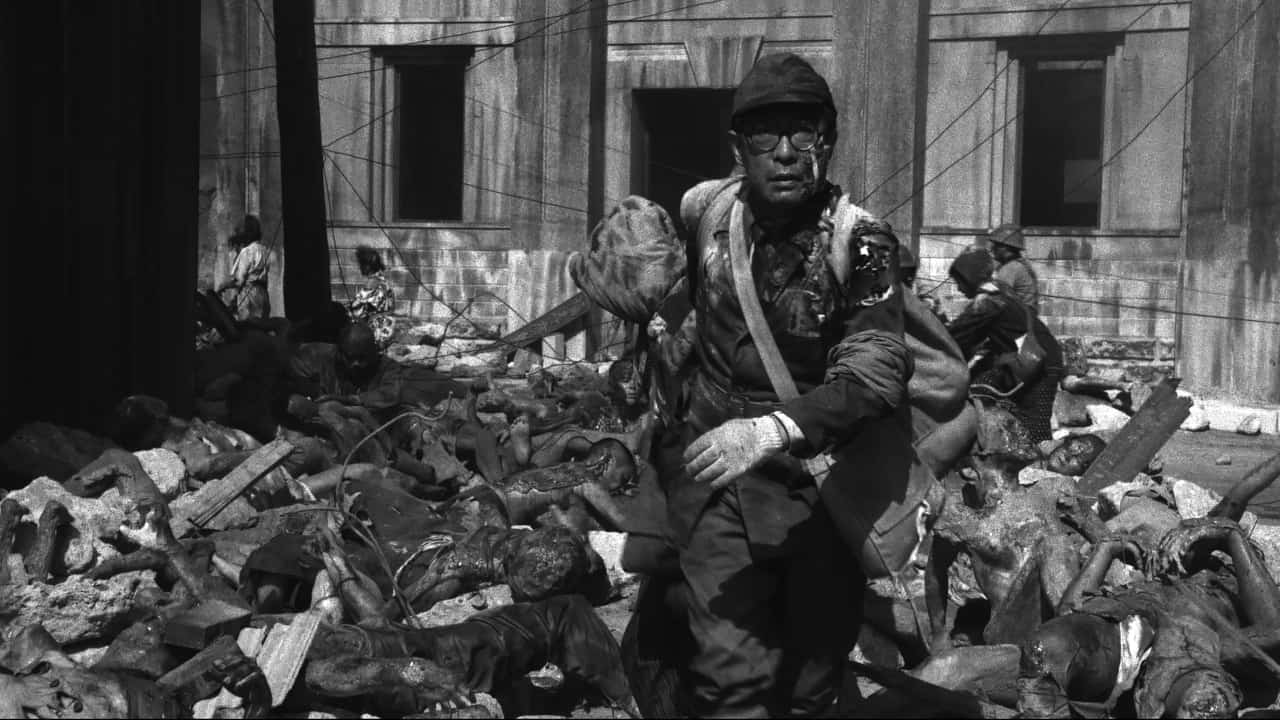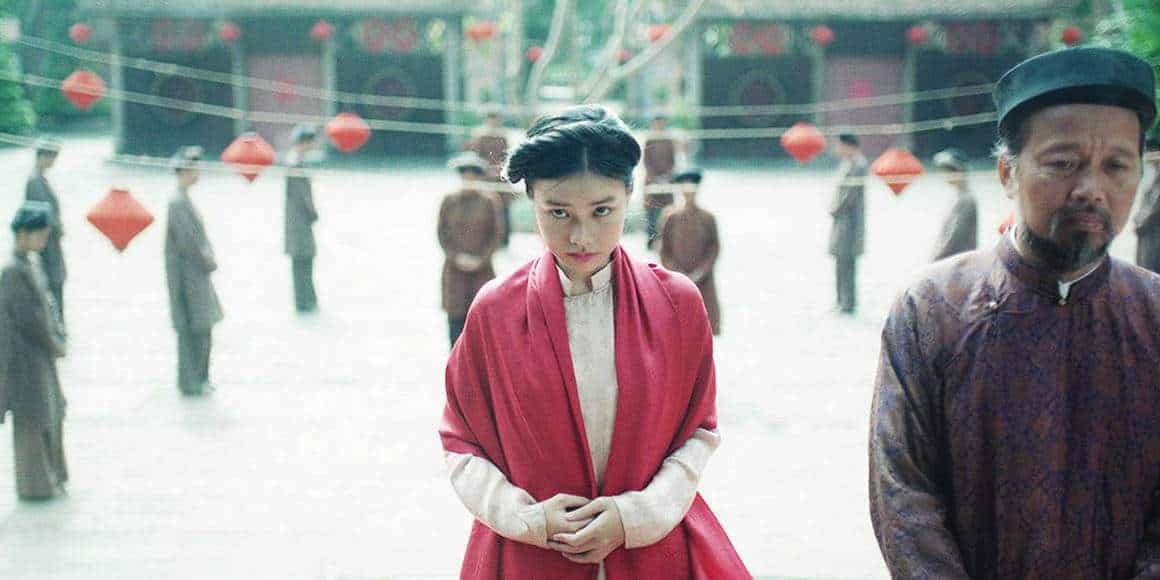According to the Oxford English Dictionary the verb “to lament” is described as “to feel or express great sadness or disappointment about somebody/something”. The word is also regarded as a synonym for “to wail” or “to complain”, giving it a vague negative connotation, for “to lament about a condition” is just complaining about something in words, rather than through actions. Considering this definition, you could say that “Happy Lamento”, a collaboration between German director Alexander Kluge and Filipino director Khavn de la Cruz poses an interesting contradiction, since it is about the happiness or joy of complaining about a condition, as the title suggests.
In general, “Happy Lamento” does not follow a narrative of any kind, and should rather be considered a cinematic collage. Sorted through various chapters with titles like “Moon” or “Circus”, Alexander Kluge interviews friends and colleagues of his, among them writer and dramatist Heiner Müller as well as comedian and musician Helge Schneider about topics ranging from the significance of the moon in our lives or the most suitable instrument to take on a journey to the stars.

Additionally, the film contains images and scenes from Khavn's “Alipato – The Very Brief Life of an Ember” (2016), a movie set in a version of Manila in the future discussing gang violence and the overwhelming desolation of Filipino society. Seemingly with no or little connection to the parts directed by Kluge, they, nevertheless, emphasize the overall theme of happily lamenting about various conditions, from the banal to more important issues.
Considering this approach, described only in broad strokes, there is no denying “Happy Lamento” is not an easy film to watch. In fact, the very beginning of the film, the child-like drawings and titles representing transitions between the movie's chapters are more irritating than captivating. The occasional division of the screen in three parts, along with the cacophonic soundtrack consisting of sounds, music and fragmented voices are strongly reminiscent of the awkward project the late Jean-Luc Godard has attached his name to.
However, to quote William Shakespeare, there is indeed method to this madness. The overall or apparent audiovisual arbitrariness of “Happy Lamento” suggests the opportunity for a dialogue with the viewer. While the approach seems like a “stream-of-consciousness” at times, it also presents surprising connections for the viewer, for example, when Heiner Müller reads an early poem of his which may underline the notion of the sense of utopia connected to the moon. At the same time, the idea of the circus may represent a metaphor for the chaos on earth, combining the positive as well as the negative connotations of that concept.

In combination with the footage from Khavn's film, there is an additional layer of meaning, one which is inherent in the overall body of work of the Filipino director. Khavn's images reflect a blend of realism as well as the suggestive imagination you can find in the works of someone like Alejandro Jodorowsky. The repeated images of violence, the power-crazed fantasies of his characters define an interesting, yet also terrifying mirror of our world. As an addition to the scenes shot by Kluge and the archival footage, there is indeed a dialogue between the two artists, one about issues ranging from society to politics, as well as an (ironic) play with cinematic conventions.
Overall, “Happy Lamento” is a demanding experience, but nevertheless worthwhile. It is a work combining a tone of sincerity while also engaging in sequences of distinct silliness, a collage of images and sound, a dialogue, above all, asking the viewer to “happily lament” as well.


